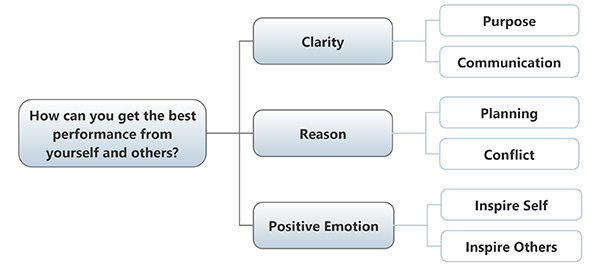Leadership Skills for Becoming a Powerful Leader

Powerful leaders on the other hand, use both their intuition and a powerful formula of skills to not only inspire people, but to help them start to problem solve as a team to look for different ways to move beyond the status quo. They are on fire, they are passionate, they have an inner inertia that gets them motivated to move forward and this energy is contagious and deeply useful with these skills in place.
So how can you cultivate your leadership skills? Easily, leadership skills can be learned. The skills you need to become a powerful leader are not bestowed on only a selected few. Leadership skills are not part of the genetic code. Leadership skills are exactly that skills which can be learned and it all starts with you!
To become a powerful leader I suggest that you begin by honestly looking at yourself, almost like a third party observer would, and ask yourself a few questions (note some of these are based on a leadership position in place):
- How do I use my time? Am I using it wisely?
- Are the actions I’m taking giving me the results I want?
- Am I effective and successful at reaching my goals?
- Are my communication skills up to par? Is my communication clear and precise?
- Am I a good listener?
- Do I delegate work properly?
- Do I honor other people’s time?
- How well do I handle conflict?
- Do I love what I am doing, am I inspired?
- Am I challenged or motivated by change?
Answer each of these as honestly as you can and if you find that improvements need to be made in any of these categories make the necessary changes. There are numerous self-help books on each of these categories and so many trainings available, it’s wonderful! Also, we have a large amount of blogs on our site to help you in resolving many of these points (click here if you would like to delve into our offerings). Find the one that appeals to you and start implementing it. Keep a celebration journal to track your positive shifts and celebrate the goals you’ve reached for yourself in this change. For you to truly be a powerful leader, you have to be the person that you’d want to have leading you. All of these questions once answered and corrected if need be, help get the best performance out of you and others. Here is a simple graph I like that helps visualize this for you a little more.
Now it is time to implement these great personal performance skills into the actions of a powerful leader. There is a saying that goes a leader is only as good as their team and there is strong truth in this. So let’s look at how to put a team together that rocks with your new way of living from your personal best.
First off, stay positive and excited, your energy is contagious (even when it’s not in a good place). Make this positive and inspirational energy a point of reference for their natural way of being when they are working with you.
When you have a team together, make sure goals and expectations are well defined and communicated. Everyone needs to understand what is expected of them; they need to know the what, why and when of the objective and timelines for milestones. . Make sure the requirements and deadlines for each phase of the project are clearly communicated and understood by all.
- What is the purpose, or goal?
- What is the detailed written plan?
- What are the top priority actions?
- What are the timelines for completion of each action?
Make sure that each member of the team clearly understands their role for the objective and who is giving them information and who they need to hand off their results to. This creates cohesion and helps to avoid any confusion. This reduces missed tasks.
Watch your team as a facilitator not a dictator. If someone has not been following through with their responsibilities address their challenges in private. Ask them for what they feel/think would be the best solution to the issue. If it would benefit from your direction offer it and put this plan of action into writing to help solidify the agreement.
Make sure that team meetings are run consistently and often at the beginning of the project. If done correctly it will naturally move into self-regulation by the team as they won’t have many questions. This will create a flow that won’t overburden your team with excessive reporting and give them more time to accomplish their goals. Clearly and often communicate that you are available when questions or issues arise.
Once your objective/project/product is ready for the testing stage then we move to these questions:
- What positive feedback results are we getting?
- What negative feedback results are we getting?
- What can we learn from the negative feedback results, which we can now use to make adaptive changes to our original plan of action, that will improve the current situation and get us closer to our goal?
- In relation to what is already going well; what can we improve upon and make even better than it currently is?
Then from the above four questions, create a plan to change what is needed from the information received with new milestone to achieve them. Focusing your team through these stages are the skills you need to be a powerful leader. The only other piece of advice is to celebrate any milestones with activities or rewards that are in line with the scope of the project. Consider if this is best served to do for the whole team with additional focus on someone who went above and beyond or individually. We all want to know we are appreciated and positive feedback and public recognition are huge in building self-worth and feeling recognized for your team’s hard work.
May these skills and information help serve you in serving others as you become a compassionate and powerful leader and also a wonderful member of your team.
All Love,
Brook





